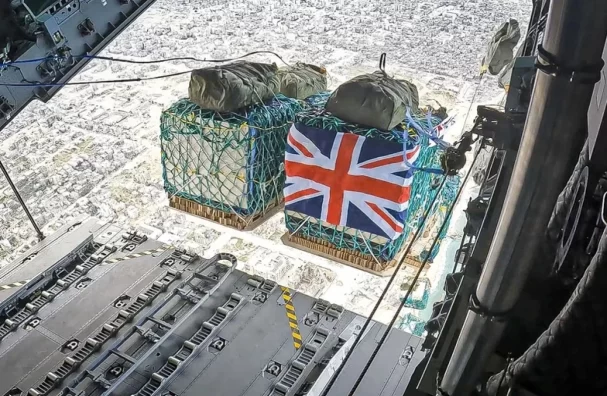
The Gaza Strip, a narrow territory along the eastern Mediterranean coast, has been a hotbed of political and military conflict for decades. The current situation is particularly dire: the region is on the brink of humanitarian crisis. The need for aid in the form of food, medical supplies, and other resources is urgent. However, the logistics of delivering this aid are complex and fraught with challenges.
Reports have recently surfaced suggesting that the UK may potentially take on a significant role in the delivery of aid to Gaza. According to these reports, British troops could be tasked with transporting aid from an offshore pier, currently under construction by the U.S. military, to the shores of Gaza.
The UK government has so far declined to comment on these reports. The possibility of deploying troops to drive aid trucks from the pier to the shore is reportedly being considered, but no decision has been made. And the proposal has not yet reached Prime Minister Rishi Sunak.
The potential involvement of British troops in aid delivery in Gaza has significant international implications. It comes in the wake of a statement by a senior U.S. military official that there would be no American “boots on the ground” in this operation. Instead, another nation would provide the personnel to drive the delivery trucks to the shore. The official declined to identify this third party, but the recent reports suggest that the UK could be this unnamed nation.
The UK is already playing a role in the effort to deliver aid to Gaza. It is providing logistical support for the construction of the pier, including a Royal Navy ship that will house hundreds of U.S. soldiers and sailors working on the project. Additionally, British military planners have been embedded at U.S. Central Command in Florida and in Cyprus, where aid will be screened before shipment to Gaza.
The potential involvement of the UK in aid delivery comes as the humanitarian crisis in Gaza is reaching a critical stage. According to the United Nations, at least a quarter of the population is teetering on the brink of starvation. This grim situation is the result of ongoing conflict, blockade, economic hardship, and the slow trickle of aid into the region.
The situation in Gaza is further complicated by Israel’s role. The ongoing conflict between Israel and Hamas has led to a blockade of the region, significantly hampering the flow of aid. Israel has faced widespread international criticism for this blockade, which many see as exacerbating the humanitarian crisis.
The current crisis in Gaza is part of a larger, long-standing conflict in the region. It began with a Hamas-led attack into southern Israel, which resulted in the death of around 1,200 people, mostly civilians. Since then, more than 34,000 Palestinians have been killed in Israel’s air and ground offensive.
